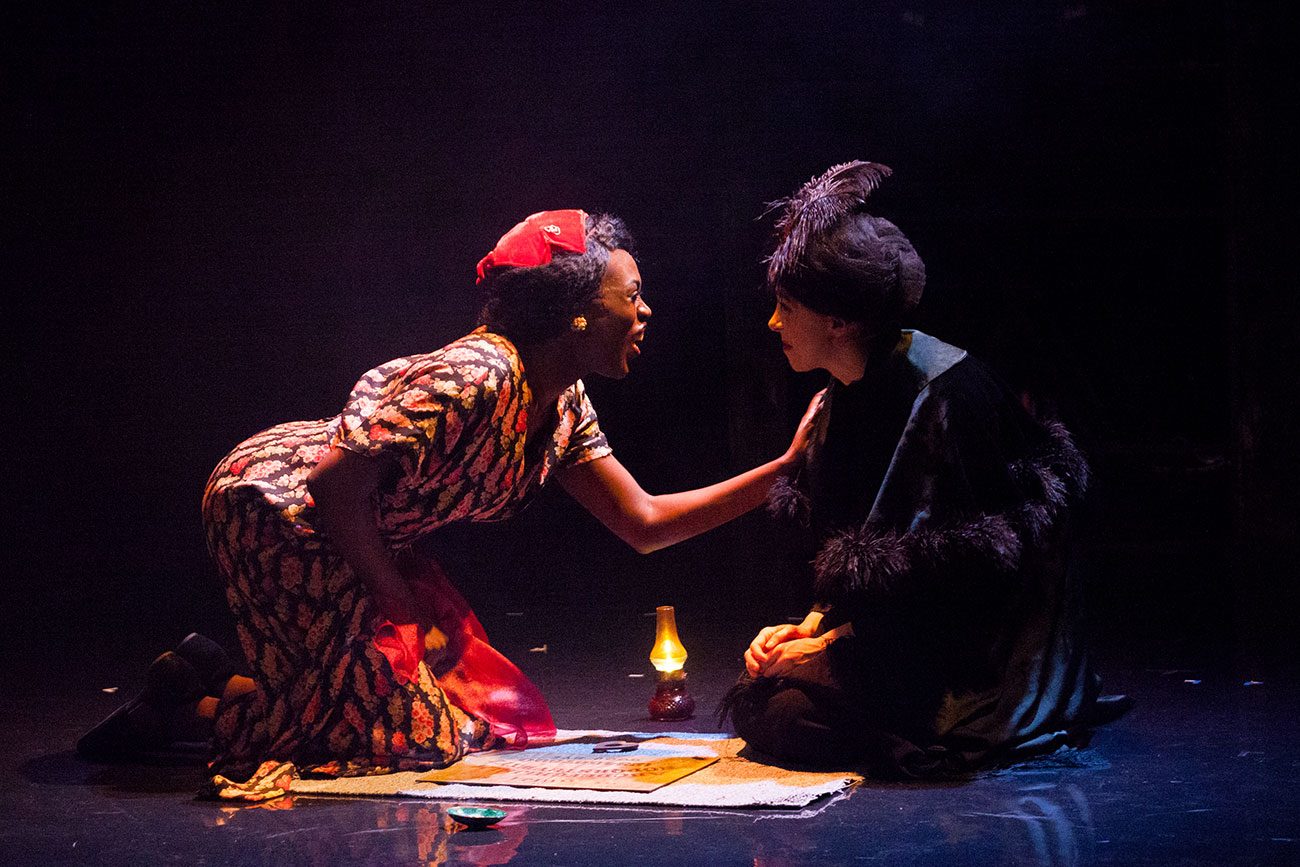There’s only one thing more exciting than a premiere and that’s a premiere of a British film noir classic, re-packaged with original music and dynamic staging.
Firstly, it is the design which captures our imagination.
Pilot Theatre’s production of Brighton Rock uses an ingenious and adaptable set which is Brighton’s west pier; it is a huge frame on which the numerous scenes hang.
Intimate meetings occur in the shadows and chases are enacted over and round the scaffold.
Byrony Lavery has written the play and says it is “one of the best accounts ever of what it is to be 16 and 17 years old in a terrible violent adolescence”.
It is, she says, about small town murder and small time gangsters. The pier and seedier areas of the town blend with night clubs, hotels and a gentile café.
The director, Esther Richard has made huge changes and her female characters are centre stage.
Music is paramount and the electric musician / composer, Hannah Peel, is on stage and part of the action.
This coupled with the set design of Sara Perks and the lighting design of Aideene Malone produces a seamless pulsating and at times jangling atmosphere.
Ruthless hunt

The novel famously begins with an unsettling sentence, “Hale knew, before he had been in Brighton three hours that they meant to murder him”.
A ruthless hunt ensues for those who have threatened Pinkie, the anti-hero and gangster, played with a strange childlike quality by Jacob James Beswick.
The naive Rose (Sarah Middleton) falls in love with him and is swept along as he covers his tracks Ida (Gloria Onitiri) is a local woman who becomes his nemesis, as she searches for witnesses to convict Pinkie.
So far so good but what of theatrical technique? The first half has to be strong on narrative and the scenes are brief and at times, rather too rapid.
The dramatic set pieces like Ida’s meeting with Hale and his death are achieved with stylised movement and Pinkie’s self dramatising and insidious control of the hapless Rose, are acted with simplicity.
Richardson has a clear handle on emotion: Ida’s self-belief and relentless pursuit have cool intent, her language in discussion with Rose is clipped and honest but never played for sentimentality.
Rose is enthralled by the glamorous figure but is quite able to accept Pinkie’s crimes, without believing his true evil. Ida becomes the moral compass and her non-religious integrity contrasts to the twisted Roman Catholicity of Rose and Pinkie.
Focus and pace


In the second half the story careers to the climax unswervingly. Richard’s production maintains focus and pace throughout.
It is a modern day morality tale set in a brooding seaside landscape. The very normalcy of it emphasising the rottenness underneath.
On Pinkie and Rose’s wedding night, the couple are placed on a staircase which spins as they move in stunted sexuality, Pinkie’s death is a brilliant sequence of movement as he plunges off the pier into the sea.
The company ensemble facilitate this and are evident as gyrating figures or a menacing presence beneath the pier.
What is different and memorable about this version of Brighton Rock is the clever use of sound. Pinkie and Rose’s relationship is underscored by a love theme, a theme which returns as he searches for redemption.
It is hauntingly captured by York Theatre Royal’s choir sounding individual notes which are played like a virtual instrument.
The dance scene at Sherry’s, the pub music and the noise of Race Day all provide specific soundscapes. and there is the ever-present crashing of the waves breaking on the shore.
Once the play has run and become less staccato, the cast will gain confidence and it will become an excellent production. It tours to 11 venues until the end of May and will have to adapt to every one.
I left the theatre with the brooding image of the burnt out west pier which symbolised such waste and lost dreams.
